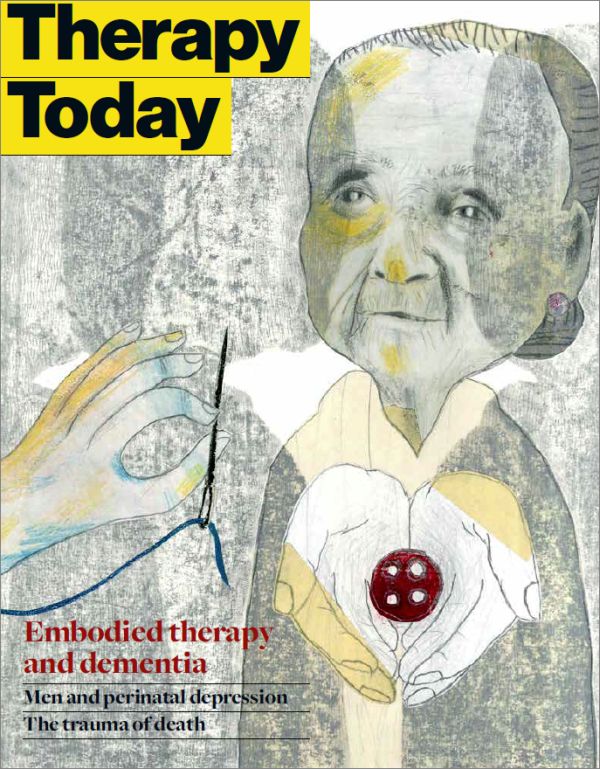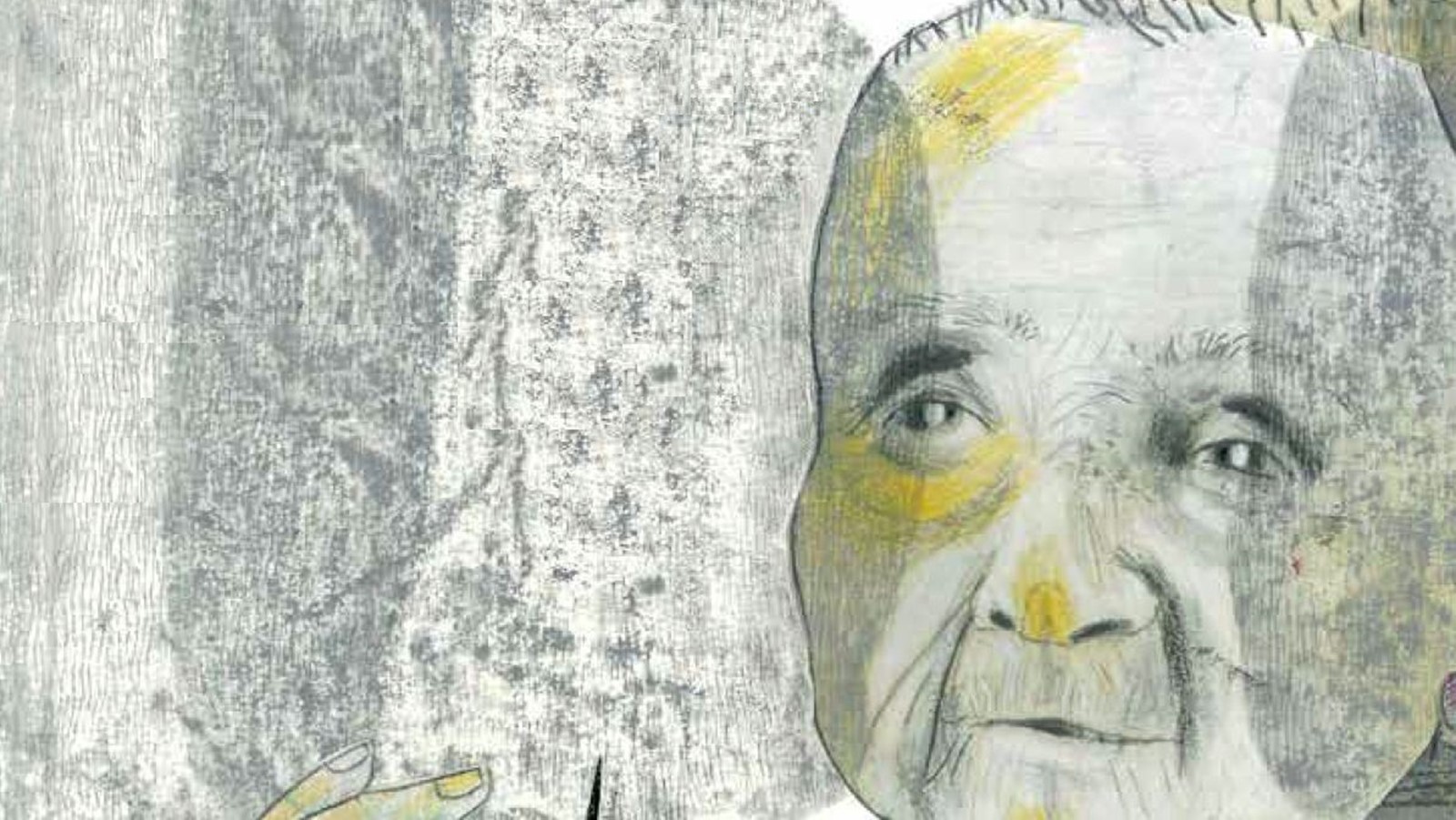In this issue
Features
Dementia and embodied psychotherapy (free article)
Beatrice Allegranti describes her new film that tries to help carers understand better the experience of dementia.
Men and perinatal depression
James Costello finds that male partners of women with perinatal depression can learn a lot from groupwork.
Trauma and the dying
It’s important to know about the effects of severe trauma if you work with dying people, says Louis Heyse-Moore.
Asexuals – a hidden one per cent
Joanna Russell urges therapists not to ignore the existence of people who, like her, are asexual.
Older women and domestic violence
Older women can also be victims of domestic violence, say Hannah Bows and Jeannette Roddy.
Regulars
How I became a therapist
Ayesha Aslam
Dilemmas
Pursuing missed payments

A pdf of this issue is available in the Therapy Today archive
Editorial: Depression, dementia, death – hope
Dementia, dying, perinatal depression and domestic violence. The headlines in this month’s issue don’t promise much joy. And yet, and yet... read the articles; you may come away inspired.
First we have Beatrice Allegranti’s article on her film I Can’t Find Myself. Dementia is often seen as stealing the person and leaving only a body behind. Beatrice’s film will, she hopes, inspire carers to work kinaesthetically, literally with the body, and new ways of relating.
Then we hear from Louis Heyse-Moore, who argues that too little consideration is given to the effects of severe trauma in counselling and psychotherapy with the dying and their bereaved. There are good deaths, but there are also deaths that are protracted, violent, scarring (mentally and physically) and terrifying, he writes; counsellors and psychotherapists, of all professionals, surely owe it to their clients to help them name that terror and so deprive it of at least some of its power.
What do men know about perinatal depression, James Costello was asked when he joined a team developing workshops for families affected by perinatal depression? Well, not a lot, he readily admits. And this readiness to admit ignorance is, perhaps, one of the keys to men being able to help their partner through PND. Perhaps the hardest yet most important step is for men to give up ‘elements of [their] masculine sense of autonomy and competence’, James writes. In short, it is when men can admit they can’t fix the problem that they find they are better able to be of use to their partner and children through the depression and despair. And perhaps groupwork is also a key element: perhaps men are more able to take up this challenge from other men?
And, talking of changing masculine behaviour, we cover the roll-out of the new Drive programme for very violent perpetrators of domestic abuse, which has been accused of diverting resources away from the victims (see News p6). Contrast this with Hannah Bows’ research into the overlooked and unseen needs of older victims of domestic violence. The issue shouldn’t be about competing priorities; in a compassionate world we have to hold on to counselling’s fundamental belief in the possibility of change.
Catherine Jackson
Acting editor
